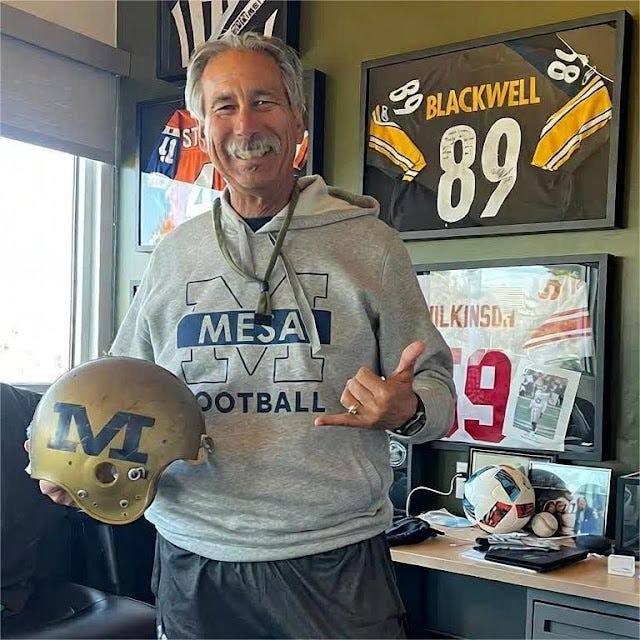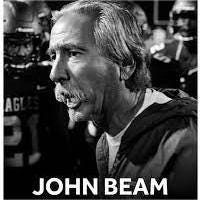College football coach John Beam from ‘Last Chance U’ has died after being shot

The sports world woke to heartbreaking news this week: John Beam, the widely respected college football coach who starred in Netflix’s Last Chance U, has died after being shot. His death came as a shock to former players, fans, and colleagues who knew him as a mentor, father figure, and a relentless believer in second chances.
Beam’s passing marks the end of an era in community college football. For decades, he dedicated his life to shaping young athletes in Oakland — turning raw, overlooked talent into disciplined, ambitious men ready to conquer life beyond the field.
A Devastating Loss
Reports confirmed that John Beam was shot and fatally wounded in what investigators believe to be a targeted incident. Emergency responders rushed him to the hospital, but he was later pronounced dead. Police have launched an ongoing investigation, and while details remain scarce, the incident has left the entire Oakland community mourning one of its most influential figures.
Fans and players flooded social media with emotional tributes, calling Beam a “true coach,” “a real one,” and “the man who believed in those nobody else would.” His name quickly trended across sports media outlets, accompanied by heartfelt memories and clips from Last Chance U — the series that introduced his remarkable character to a worldwide audience.
From Local Legend to National Figure
Well before fame found him, John Beam had already built a powerful local legacy. He began his coaching career at Skyline High School in Oakland, where he shaped a program known as much for its discipline as for its wins. Under his leadership, Skyline became a powerhouse and a safe haven for student-athletes seeking structure and purpose.
Later, Beam moved to Laney College, where he completely revitalized its football program. He wasn’t just a coach on the sidelines — he was a mentor off the field. He helped players stay focused academically, find scholarships, and move on to university football programs. For him, success wasn’t only measured in touchdowns but also in transcripts and transformed lives.
Finding Global Fame on Netflix
In 2020, Beam’s work caught the world’s attention through Netflix’s Last Chance U. The series, known for documenting junior college football stories, showcased Laney College during the 2018 season — one of its best years under Beam’s leadership.
Unlike coaches from earlier seasons who sometimes let frustration get the best of them, Beam’s approach stood out for its balance of authority and empathy. He spoke with calm but firm conviction, motivated rather than demeaned, and recognized that his players often faced enormous challenges beyond football — homelessness, family struggles, poverty, or mental health fights.
Viewers instantly connected with his authenticity. There was no performance, no act — just a man who loved his players, expected accountability, and lived to see them win at life. Beam’s presence on the show turned him into a symbol of what real coaching looks like: mentoring, not just managing.
His Coaching Philosophy
To understand why John Beam was so beloved, one must look at his philosophy. He often repeated to his players that football wasn’t a career — it was an opportunity. He taught them that responsibility and respect would take them further than athletic ability alone. Those who played under him said the lessons they learned at Laney extended far beyond the game.
Beam’s practices were intense but purposeful. He demanded punctuality, teamwork, and resilience, while also making sure players kept up with their classes. He believed that structure and empathy weren’t opposites — they were a formula for success. He drilled fundamentals on the field and values off of it.
Many of his former players went on to play for Division I schools or even make it to professional leagues. Yet nearly all of them say the same thing: Coach Beam taught them how to believe in themselves when the rest of the world had given up.
The Man Behind the Tough Exterior
Those close to Beam remember a warm, funny, and fiercely loyal man. He could yell in practice one minute and crack a joke the next. He invited players into his office to check on their wellbeing, often helping them navigate personal struggles. His wife and family were also part of the extended football community, opening their home to players in need.
What made Beam special wasn’t only his football IQ — it was his humanity. He didn’t see “problem kids” or “failed athletes.” He saw potential. He understood that many young men came from environments that lacked stability, and he tried to fill that gap with structure and genuine care.
The Community Reacts
After his death, Laney College released a statement mourning their longtime head coach. The college described him as “the heart of Laney football” and announced that the upcoming football season would be played in his honor. There are already plans to rename the Laney football field “Beam Stadium,” a permanent tribute to his decades of service to Oakland athletics.
Candlelight vigils have been held at the Laney campus, with hundreds attending to honor his memory. Players who once wore green and gold jerseys stood side by side, some wearing their old helmets, others holding posters that read “We Are Laney, We Are Beam.” The scenes captured the depth of his impact — stretching far beyond sports.
NFL and college football figures also joined in tribute. ESPN analysts praised Beam as “a foundational coach who built character first.” Former Last Chance U players shared emotional clips of him offering motivation, laughter, and life advice, with many writing, “He saved me.”
The Investigation Continues
Police remain tight-lipped as they gather evidence. Early reports indicate that the shooting may have occurred near a local event where Beam was present. Authorities have called for witnesses to come forward, emphasizing the importance of community cooperation to solve the case.
Local leaders have condemned the violence, describing Beam’s death as a tragic reminder of how senseless acts can rob a community of its heroes. Oakland Mayor Sheng Thao released a statement calling Beam “a pillar of strength and mentorship who gave generations of young men hope.”

Beyond Football: His Broader Impact
Beam’s influence wasn’t confined to the gridiron. He worked with local youth programs, partnered with schools to improve graduation rates, and often visited community centers to speak about education and discipline. His commitment to Oakland was lifelong.
He also mentored younger coaches, teaching them how to connect with players beyond the scoreboard. To Beam, success meant watching a former athlete graduate college, earn a job, or come back years later to say thank you. His office walls were covered with photos and handwritten notes from students whose lives he changed.
The Legacy Lives On
Even in death, John Beam’s legacy continues to inspire. Former players across the country have vowed to carry on his teachings — discipline, integrity, and self-respect. Laney College administrators announced the creation of the “John Beam Scholarship,” designed to fund student-athletes who show leadership and resilience both in school and in life.
Beam’s story now joins the larger narrative of Last Chance U: second chances, self-discovery, and the power of belief. But unlike many others, his chapter didn’t end in a television series — it lives on through those he mentored and the community he uplifted.
A Life of Purpose
John Beam believed that football could change lives, but only if players were willing to change themselves first. His legacy is not a trophy or a scoreboard record — it is the hundreds of young people who walked into Laney College uncertain and left with a sense of direction.
His death is an irreplaceable loss, yet his life remains an unforgettable example of what happens when a person dedicates themselves completely to the service of others. The field may grow quiet without his voice echoing across it, but the lessons he taught will never fade.
Oakland didn’t just lose a coach — it lost one of its greatest teachers.